John SudworthReporting from Kyiv

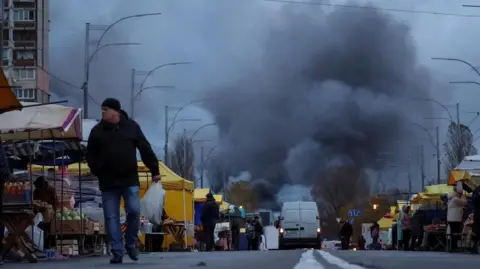 Reuters
Reuters
At the market in Kyiv, people were visibly shaken by the attack on their neighbourhood
Following another week of intensive and lethal Russian bombardment of Ukraine's cities, a composite image has been doing the rounds on Ukrainian social media.
Underneath an old, black-and-white photo of Londoners queuing at a fruit and vegetable stall surrounded by the bombed-out rubble of the Blitz, a second image - this time in colour - creates a striking juxtaposition.
Taken on Saturday, it shows shoppers thronging to similar stalls in a northern suburb of the Ukrainian capital, Kyiv, while a column of black smoke rises ominously in the background.
"Bombs can't stop markets," reads the caption linking the two images.
The night before, as the city's sleep was interrupted once again by the now all-too-familiar booms of missile and drone strikes, two people were killed and nine others injured.
The implication is clear. Rather than destroying public morale, Russia's dramatic ramping up of attacks on Ukrainian cities is conjuring a spirit of resilience reminiscent of 1940s Britain.
When I visited the market - with the black fumes still billowing from the missile strike on a nearby warehouse - that sense of fortitude was evident.
But there was plenty of fear, too.

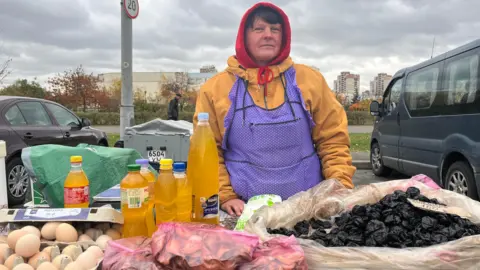
Halyna says she believes the situation will get worse
Halyna, selling dried prunes and mushrooms, told me she saw little cause for optimism.
"In my opinion, according to the scriptures of the saints, this war hasn't even started yet."
"It will get worse," she added. "Way worse."
A shopper who told me she had felt her house tremble from the force of the blast was still visibly shaken by the experience.
Inspiring memes about blitz-spirit are all very well, but for Ukraine the far bigger question is not how to endure this war, but how to stop it.
And with President Donald Trump proclaiming his powers as a peacemaker and pushing that question back to the centre of global politics, another term from that same period in history is once again looming large – 'appeasement'.
The question of whether Ukraine should fight against or negotiate with an aggressor has been there since Russia annexed Crimea in 2014.
But more than three years after it launched its full-scale invasion, the war is entering a new phase, and that word has re-entered the global debate.
More than three years after Russia launched its full-scale invasion, the war is entering a new phase.
On the battlefield, fighting has reached a brutal stalemate, and Russia is now increasingly targeting Ukrainian cities far from the front line.
Its aerial attacks – using ballistic missiles, explosive-laden drones and glide bombs – have gone from an average of a few dozen each day last year to nightly, and often run into the many hundreds.

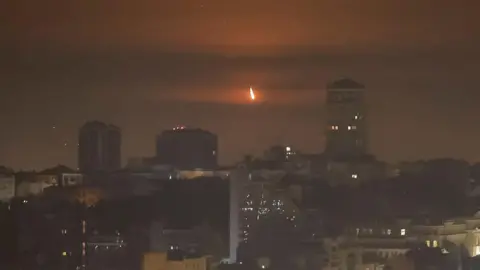 Reuters
Reuters
Ukraine has seen an increase in strikes over the past few months
What the Kremlin insists are "military and quasi-military" targets now regularly include Ukraine's civilian rail stations, passenger trains, gas and electricity supplies, and homes and businesses.
According to UN figures, almost 2,000 civilians have been killed this year, bringing the total since the start of the war to more than 14,000.
As well as the human toll, the financial burden is rising exponentially, with the cost of the air defence systems significantly higher than that of the waves of cheap drones being sent to overwhelm them.
Just over a week ago, Ukrainian President Volodymyr Zelensky set off for his meeting in Washington with President Donald Trump in optimistic mood.
The US, he believed, was running out of patience with Russia.
But he was wrong-footed by a surprise Trump-Putin phone call while en route, and subsequent talk of another summit between the two leaders in Budapest.
Zelensky's own exchange with Trump in the White House was reportedly a difficult one, with the US president once again repeating his old talking points.
Framing the conflict as little more than a fight between two men who didn't like each other, Trump insisted they needed to settle the war along the existing front line.
Warning of the risks of escalation, he also refused to grant Ukraine the use of the long-range Tomahawk missiles to strike deep into Russia.

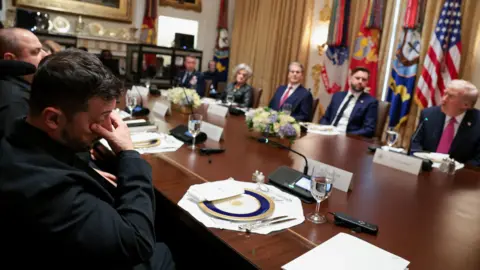 Reuters
Reuters
Zelensky's most recent visit to the White House did not go to plan after Trump held a phone call the evening before with Russia's President Putin
Gregory Meeks, a senior Democrat on the US House of Representatives Foreign Affairs Committee, called Trump's strategy "weakness through appeasement".
Meanwhile, Polish Prime Minister Donald Tusk wrote on X that "appeasement never was a road to a just and lasting peace".
Although the comments from the Ukrainian president were slightly more guarded – having learned the hard way not to criticise Trump too strongly – they implied the same meaning.
"Ukraine will never grant terrorists any bounty for their crimes, and we count on our partners to take the same position," Zelensky wrote on social media after arriving back in Kyiv.
With Russia making it clear that it wasn't anything like as ready as the US president had hoped to end the fighting - vowing instead to advance on even more territory - the planned summit was put on ice.
Washington promptly sanctioned Russia's two biggest oil companies – a sign, perhaps, of growing impatience with Putin.
While the economic impact to Russia is likely to be minimal, it represents a major shift in Trump's foreign policy, having previously said he would not impose sanctions until European nations ceased buying Russian oil.
Even if that is the case, it's clear that a large gulf remains between the US and European view of how to end the conflict.
It was on firmer ground that Zelensky found himself a few days later, meeting various European leaders in Brussels and later in London.
More sanctions packages were agreed and progress was made towards using Russia's own frozen assets to fund Ukraine's war aims, though ultimately no final agreement was struck.
Speaking alongside Zelensky in Downing Street on Friday, UK Prime Minister Sir Keir Starmer promised he would work with his European partners to help provide more long-range weapons to take the fight onto Russian territory.

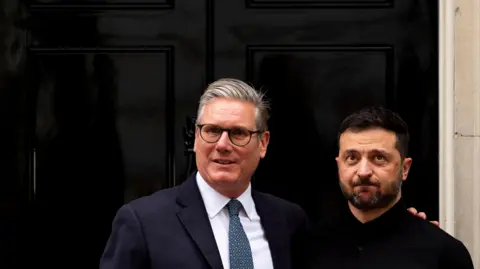 PA Media
PA Media
Zelensky then went on to visit London to meet with several European leaders
With hindsight, it's easy to mock Britain's policy of appeasement during the 1930s. Indeed, some did so even then.
"You could always appease lions by throwing Christians to them," Harold Macmillan, a future prime minister and opponent of the policy, once said.
"But the Christians had another word for it."
And yet we sometimes forget that the man most associated with the policy, then-prime minister Neville Chamberlain, enjoyed significant support from the US, which shared his deep fear of repeating the horrors of the World War One.
President Trump appears to harbour similar fears today.
The risk of a widening war with a nuclear armed state is not to be taken lightly, as Ukraine increases the effectiveness and frequency of its strikes on Russian oil depots and, in some instances, its power grid.
The Russian leader knows this, warning recently that the use of foreign supplied Tomahawks could prompt a response that was "serious, if not staggering."
But few Ukrainians I've spoken to this week have any doubt that the lesson of history holds true.
"Russia only stops when it's washed in its own blood," said Yevhen Mahda, a professor at Kyiv's National Aviation University.
"Ukraine has proven this. The sooner the West understands, the better for us all."
At the market, surrounded by gourds and carrots grown in his own garden, Fedir said he had also been jolted awake by the power of the nearby missile strike.
"Putin understands only force," he said. "We need to destroy their airfields and their factories that produce these shells, bombs and missiles."
The greater risk, he suggested, lies in concessions, negotiations or appeasement – call it what you will – that, however well motivated, only serve to further embolden an authoritarian power.
"Does Europe think he will calm down after Ukraine," he asked. "If he takes Ukraine, he'll carry on."
.png)
 1 month ago
15
1 month ago
15
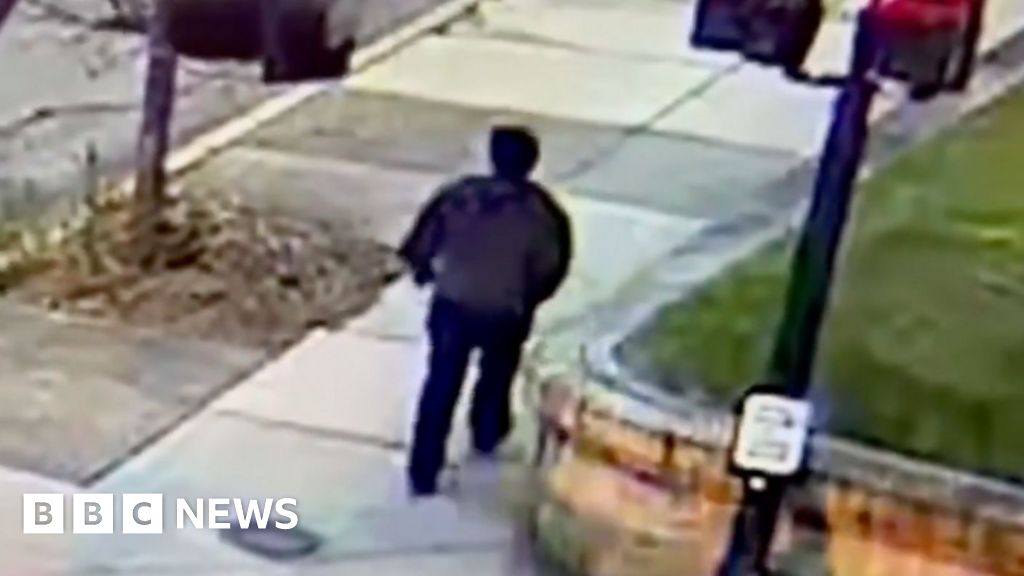
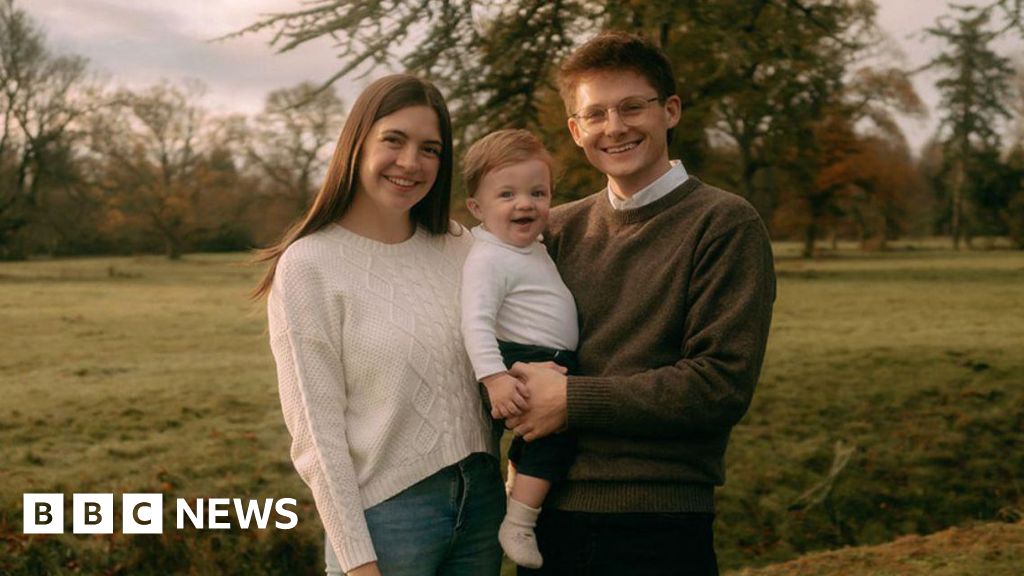
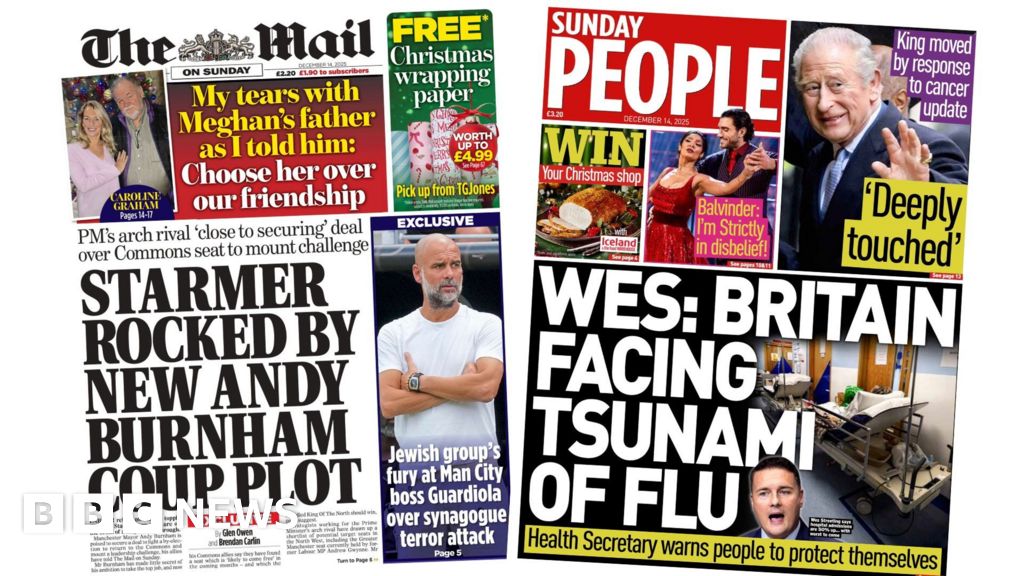





 English (US) ·
English (US) ·